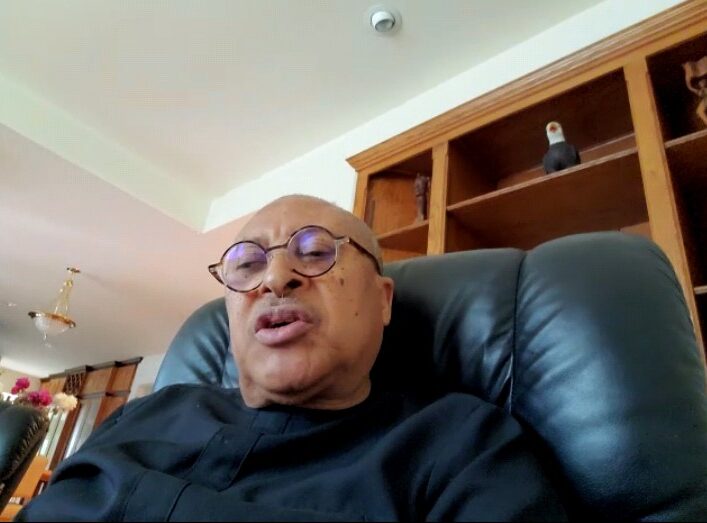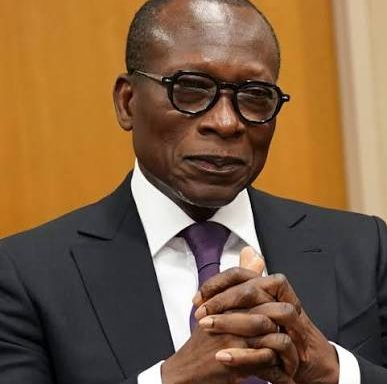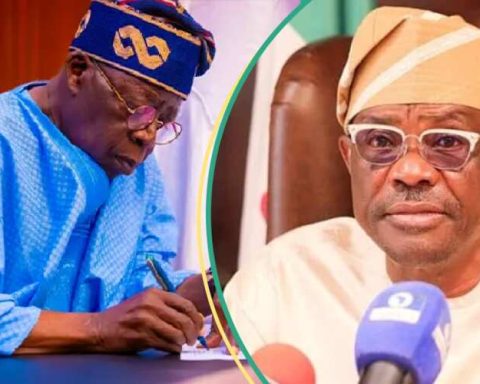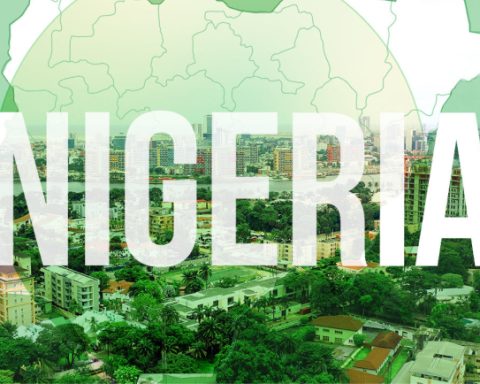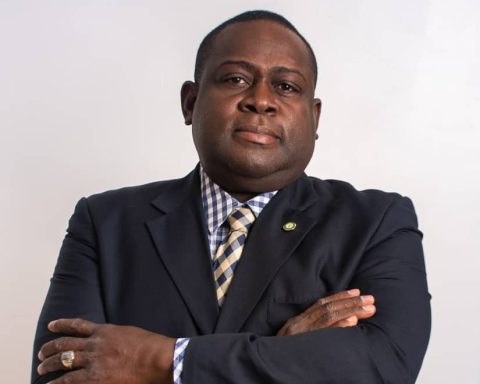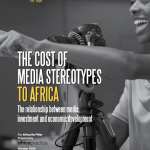There are many present-day indications that the Nigerian system may be consolidating on the Buhari’s era of autocracy. From idiosyncratic appointments of ministers against extant laws to arbitrary pronouncements on labour issues, the Nigerian government since 2015 has shown a penchant for dictatorship towards its citizens and institutions, while ignoring its own failures.
For instance, despite government’s tendency to breaching its own agreements, it has consolidated on its noxious inclination to withholding workers’ salaries and arm-twisting workers by weaponising hunger just to break labour strikes. Between 1999 and 2023 (24 years), members of the Academic Staff Union of Universities (ASUU) went on strike 19 times, spending about 2,082 days in the process or five years and seven months. In the Buhari years between May 2015 and May 2023, university lecturers spent 632 days (almost two years) on strike due to government neglect of the educational sector, especially government breach of the 2009 agreement between it and the ASUU. No one has sanctioned government for breaching agreements times without number.
Join our WhatsApp ChannelNo Work NO Pay
And so, following the recent strikes by the Academic Staff Union of Universities and the National Association of Resident Doctors (NARD), government held back seven and half months and 17 days’ worth of salaries of the two unions respectively. The federal government had issued the ‘No Work No Pay’ rule against ASUU and NARD, which was upheld by the National Industrial Court of Nigeria (NICN).
READ ALSO: ASUU Strike: Varsity VCs Urge Nigeria Government To Withdraw ‘No Work No Pay’ Policy
The rule holds that government will refrain from paying the salaries of any worker or group of workers embarking on strikes. According to the Trade Dispute Act, Section 43 (1), “Notwithstanding anything contained in the Act or any other law, where any worker takes part in a strike, he shall not be entitled to any wages or other remuneration for the period of the strike, and any such period shall not count for the purpose of reckoning the period of continuous employment and all rights dependent on continuity of employment shall be prejudicially affected.”
Notably, since ASUU called off its eight-month strike in October 2023, many universities in the country have laboured to make up on lost ground, and they are succeeding though not without sizzling pressures on staff and students.
The Federal University, Oye Ekiti (FUOYE) ran two sessions simultaneously. Therefore, when President Bola Tinubu announced last week that the federal government was partially waiving the ‘no work no pay’ rule for the last time, many workers wondered what that meant. There were derisive comments that the move was part of the presidents’ desperate drive to curry favour from an important segment of the multitude of distraught Nigerians. It was in the realm of guess and surprise if the FG did not recognise that ASUU members had overworked themselves to cover up on lost times, and that labour unions still had the legal right recognized globally to go on strike. Many also wondered if the partial waiver and the threat about the last time of granting such a waiver were a systematic death knell on the clamour for the rest of the three months and half. This is not withstanding the widespread skepticism that government may not honour its promise on the four months.
Prerogative of Mercy, DoU and ASUU’s State of Pity
Even worse is the prerogative of mercy cited as the basis of the FG’s waiver. Funnily, members of the Senior Staff Association of Nigerian Universities are spoiling for war because Tinubu’s waiver and prerogative of mercy apparently envisaged only ASUU members. And then the push for an extraction of a Document of Understanding (DoU) from ASUU by the Federal Ministry of Education and The Federal Ministry of Labour and Employment. What is this DoU, and how would it differ from the many Memorandums of Understanding (MOUs) between ASUU and the FG, which the latter flouted with impunity and aplomb. It bears restating that the right to strike is internationally and nationally recognized.
READ ALSO: Why We Embark On Another Indefinite Strike – ASUU
Section 31(6 b, c & d) of the Trade Unions Act, states that: no person, trade Union or employer shall take part in a strike or lockout or engage in any conduct in contemplation or furtherance of a trade disputes unless:
b. the strike or lockout concerns a Labour dispute that constitutes a dispute of right;
c. the strike or lockout concerns a dispute arising from a collective and fundamental breach of contract of employment or collective agreement on the part of the employee, trade Union or employer
d. the provisions for arbitration in the trade Dispute Act cap 18 laws of the Federation of Nigeria 2004 have first been compiled with and
It is quite clear therefore that the DoU as required by Tinubu will only breach the laws on industrial disputes and signal Nigeria’s deeper surge into absolutism. The result has been stark in terms of the effects on the conditions of service and on the response from academic staff. Apart from unconfirmed reports of over 500 deaths of academic staff in various universities, there are also widespread reports of brain drain and the diversion of lecturers’ attention to sundry businesses just to cope. At the peak of the nearly 8-month strike in 2022, the University of Lagos branch chairman of ASUU, Dr Dele Ashiru, told journalists that 70% of the best experienced staff had left the country due to government neglect and disrespect for the university workers. Some media reports indicate mass resignation of lecturers from universities, with at least a combined average of 55% having left the University of Lagos, University of Ibadan, Adekunle Ajasin University, Akungba-Akoko and University of Ilorin, Obafemi Awolowo University, Federal University of Agriculture, Abeokuta, and Olabisi Onabanjo University, Ago-Iwoye.
Government’s Autocracy is also Killing University Autonomy
It is also in this spirit of absolutism that government unilaterally announced salary increases of 25% and 35% for university workers, despite the agitations from university unions. The Trade Dispute Act of 1976 and ILO conventions 49 of 1948 duly recognise that there should be mutual agreement between employees and employers in matters of collective bargaining.
Government’s unilateral positions is ostensibly based on its preachments that there is shortage of financial resources to meet the unions’ demands for higher wages. This is in addition to the rank absence of resources to run existing universities. Yet, government continues to create new universities against ASUU’s agitations. As of October 2023, Nigeria has 267 universities made up of 58 federal universities, 61 state universities and 148 private universities. Of these, 12 were approved in April 2022, 37 in May 2023 and seven in October 2023. The federal government has often laid claim to the importance of education to economic development and improved access to tertiary education, a comment seen as hypocritical in the face of the current reality.
Curiously, too, government has been on an unrelenting mission to undermine university autonomy as enshrined in law through policies such as the Treasury Single Account (TSA) and the Integrated Personnel and Payroll Information System (IPPIS). These policies have been the subject of ASUU strike since 2012. ASUU insists that the introduction of IPPIS and TSA has altered the transparency of university budget, financial expenses, personnel recruitment and other relevant reportable activities.
Indeed, after the flat failure of public primary and secondary schools in Nigeria, tertiary education is also in line for a catastrophic collapse. High student enrolment, crass inadequacy of resources, poor teacher motivation and reward, student disenchantment, dying academic values, poor funding, industrial actions, and the like create a bleak future for higher education in Nigeria, especially universities. In the midst of it, government is wont to brutalize those who agitate through strikes – a case of beating a child, and threatening it not to cry.
Dr Mbamalu is a veteran journalist, Media and communication consultant.
Follow on X: @marcelmbamalu





